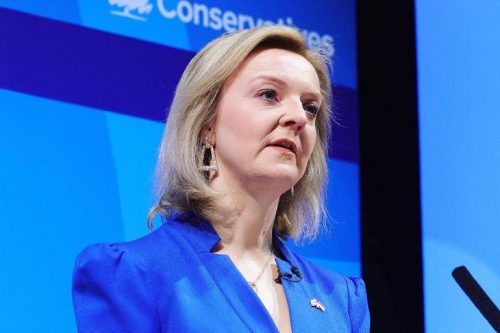Truss resignation: region’s business leaders attack ‘shambolic’ Government

Liz Truss has resigned and will become the shortest-serving Prime Minister in British history when a successor is chosen in the next few days.
A leadership election will now begin and be “completed within the next week”, with Truss remaining in office until the end of that campaign.
Truss, is a very brief 204-word statement outside 10 Downing Street this lunchtime, said: “We set out a vision for a low tax, high growth economy that would take advantage of the freedoms of Brexit.
“I recognise, given the situation, I cannot deliver the mandate on which I was elected by the Conservative Party.”
It is expected that Rishi Sunak and Penny Mordaunt will feature in the leadership election, with Ben Wallace and former Prime Minister Boris Johnson also likely to be talked about as options.
The next leader will become the fifth-consecutive Conservative Prime Minister but will inherit a huge range of challenges, including the cost of living crisis, the war in Ukraine, the impact of Brexit, and a divided and exhausted party.
There is a statement planned for October 31 by Jeremy Hunt that was to set out a medium-term fiscal plan and release forecasts by the Office for Budget Responsibility that had been brought forward in an attempt to calm the markets. Longer-term the new leader will also have an eye on the next general election, which must be held by January 2025.
Labour Party leader Sir Keir Starmer has called for a general election to be held now and said “the British public deserve a proper say on the country’s future”.
Mayor of the West Midlands, Andy Street reacted to the news by saying: “This is a complete mess, and I know people across the West Midlands feel utterly let down at a time when they face immense pressures in their daily lives. We are all crying out for strong and consistent leadership, and I dearly hoped we’d get it.
“But now the party has one last chance to pull itself together, unite behind a new leader, and deliver what it was elected to do. People outside Westminster have no interest in personal political ambition, they just crave good leadership, help and support at this time.
“So whoever is elected leader needs to work with us in the West Midlands to provide exactly that. My job, once again, will be to ensure that happens.”
Truss took office on September 6 after a long Conservative Party leadership campaign over the summer, but has been under pressure since her then-Chancellor Kwasi Kwarteng delivered his mini-Budget on September 23.
The measures announced caused huge financial issues which led to Kwarteng’s sacking last week, and new Chancellor Jeremy Hunt subsequently reversed almost all of the fiscal policy announcements.
Pressure on Truss mounted even further with the shock resignation yesterday of Home Secretary Suella Braverman – only 43 days into her own job – over data leaks and fierce disagreements over immigration policy.
A Labour effort to push a new law through Parliament banning fracking triggered further Tory turmoil. MPs were warned they would be expelled from the party if they did not support the Government, despite many of them being strongly opposed to fracking. Following the chaotic fracking vote, increasing numbers of Conservative MPs began openly calling on Truss to step down.
The previous shortest-serving Prime Minister was George Canning, in 1827, who served for 119 days before he died in office. It will also be the first time in 100 years that three different Prime Ministers have served in a 12-month period.
The chief executive of Coventry and Warwickshire Chamber of Commerce has called on MPs to stop “playing politics” and restore stability to the UK following the resignation of Prime Minister Liz Truss.
Corin Crane said: “Simply, if our members ran their businesses as shambolically as Westminster is currently being managed, they would already be out of business.
“The cost of living is soaring, the stock market has tumbled, borrowing is more expensive and people are massively concerned about their energy cost yet that almost seems lost in what we are seeing from Parliament.
“It is long overdue that they stopped playing politics, and brought some much-needed stability. Certainty is key in business and with so much currently in flux, we need decisive yet steady leadership.
“We have already seen a reversal in several key policies which impact very heavily on business, and several infrastructure projects have been signed off – now we have to wait and see if those decisions will stick or be junked once again.”
Shevaun Haviland, director general of the British Chambers of Commerce, added: “This is unsustainable. Government must work with business to address three main issues, to show it recognises the challenges firms face.
“Firstly, they must look again at the energy support package for businesses and communicate quickly how the system will work from April.
“Secondly, they must fix the labour market, without the skilled people to do the jobs businesses need, the economy cannot thrive.
“Thirdly, to grow the economy they must set out a strategy to boost our exports.
“People run businesses and businesses rely on people. The new administration must grasp that the cost of living and cost of doing business crises are two sides of the same coin.
“We still need a clear long-term vision on how it will support firms, and the communities that rely on them, to thrive.”









